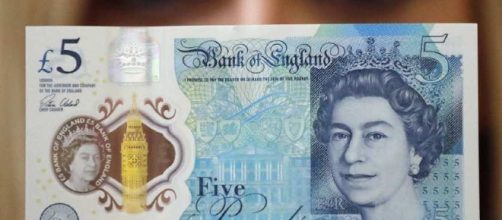After the news that the new £5 note contained animal fat came out, the Rainbow Café in Cambridge put a sign up warning customers about their new policy. This policy being that they now don't take the £5 note as payment due to what it contains.
How many are protesting?
Since the news many vegetarians have protested, with more than 120,000 people supporting an online petition. This petition urges the Bank of England to stop using animal fat when producing the £5 note.
The man who started the petition, Doug Maw, found it "disgusting". He understands the older notes possibly had things in them as well which couldn't be stopped but what he is annoyed at is the fact people are producing new notes.
He believes there are no excuses and there should be other ways to produce notes without using animals.
What are the new fivers made out of?
British vegetarians and vegans have been getting upset due to the fact that the new Currency contains tallow which is taken from animal waste product. This tallow also happens to be found in items such as candles and soap, yet the Bank of England have been pressured to find an alternative.
In order to create tallow, an animals' dead body is boiled and pressure is put to it in order to extract the fat from the bones and tissue. Non-animal based fats such as oil can also be used but the problem with switching to this alternative is ironic. Switching to the non-animal alternatives means the production methods have to change.
This kind of process isn't cheap.
Why does the fiver need to be made out of animal fat?
The tallow is used to give the new fiver anti-slip characteristics and also mean the new note can't be ripped. The company who makes the new note also stated that amount of tallow in each note was a trivial amount.
Facts you should know about the new fiver:
- It's more hygienic than the old fiver
- It doesn't involve cutting down trees because it is no longer made of paper
- It is more durable and cleaner
- It is also harder to counterfeit
440 million of the plastic £5 notes went into circulation in September. The £10 will go into circulation next year and the £20 note will go into circulation in 2020.

